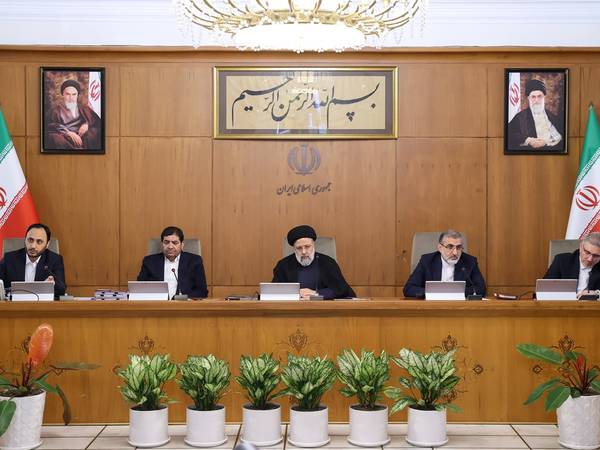A prominent newspaper in Tehran has criticized the government for its lack of an economic plan in the final year in office for President Ebrahim Raisi, whose first term has been marred by multiple crises.
Etemad daily reported last week that the budget bill for the current year received only partial approval from the parliament, a situation unprecedented in Iran. The approval process saw the bill exchanged between the government, parliament, and Guardian Council multiple times over several months. Even when partially approved, the bill required over 20 revisions in a single day. Notably, the parliament granted the government permission to utilize an "on account" budget before receiving full approval from the Guardian Council.
Describing the new Iranian year (1403, which began on March 20) as "a year without a plan," Etemad highlighted the uncertainty faced by the government regarding its budget allocation. Additionally, the government lacks clarity on which areas and sectors it can allocate funds to using the on-account budget. The parliament has pledged to provide clarification on this matter in April and May.
In practical terms, Etemad noted that the government has only received guidance on the first two months of the year from the parliament. However, there are no established laws or regulations governing the on-account budget and how parliament can oversee its spending.
The government’s own news agency, IRNA, has said in a commentary that this kind of unplanned budgeting will certainly lead to higher inflation. Former Lawmaker Gholam Ali Jafarzadeh Imanabadi concurred with IRNA and said the government cannot be happier about spending the budget without any legislative supervision.
Imanabadi criticized the lack of clarity, stating, "It's regrettable that no one knows how much budget the government has for the current year." He sarcastically added, "The Majles can only supervise the way people keep their pets and walk their dogs," referring to ever-more stringent Islamic regulations.
According to Etemad, a preliminary version of the budget bill sets the annual budget of Iran at 60,479 trillion rials, which is slightly more than $100 billion after the national currency fell 30% in the past three months. Government-owned companies allocated around 37,000 trillion rials and the government’s operation budget 27,000 trillion rials.
Etemad emphasized the absence of both a budget and a plan for spending, despite the presence of the Planning and Budget Organization in Iran.
In his New Year's Day speech, President Raisi claimed, without evidence, that the inflation rate in Iran is decreasing. However, Iran International TV reports a 40 percent increase in housing costs over the past year, with Tehran experiencing a rise of over 50 percent during the same period.
Jailed sociologist Saeed Madani had said earlier that widespread economic problems were part of the underlying crises in Iran during the past year which have led, among other things, to a rise in emigration of educated Iranians and brain drain, and a decline in the turnout in the country's recent elections.
Avaz Heidarpour, a medical doctor and a former lawmaker, told Khabar Online that some 10,000 medical staff have left Iran in the past three years saying that they need welfare for their families and hope for their children.
Outlining the importance of economic issues in social movements, sociologist Ahmad Bokharai told Khabar Online: "The protests in 1999 and 2009 were political in nature while the ones in 2017 and 2019 had economic reasons. What happened during the 2022 protests was a revolt with combined political, economic and cultural motivations.
In an interview with Etemad, lawmaker Ahmad Alirezabeigi likened the partial approval of the budget bill by the Majles to "drinking a cup of poisonous hemlock," indicating it was an unavoidable action. This suggests it may have been directed by none other than Supreme Leader Ali Khamenei as a solution to the political impasse between the government, the parliament, and the Guardian Council.
